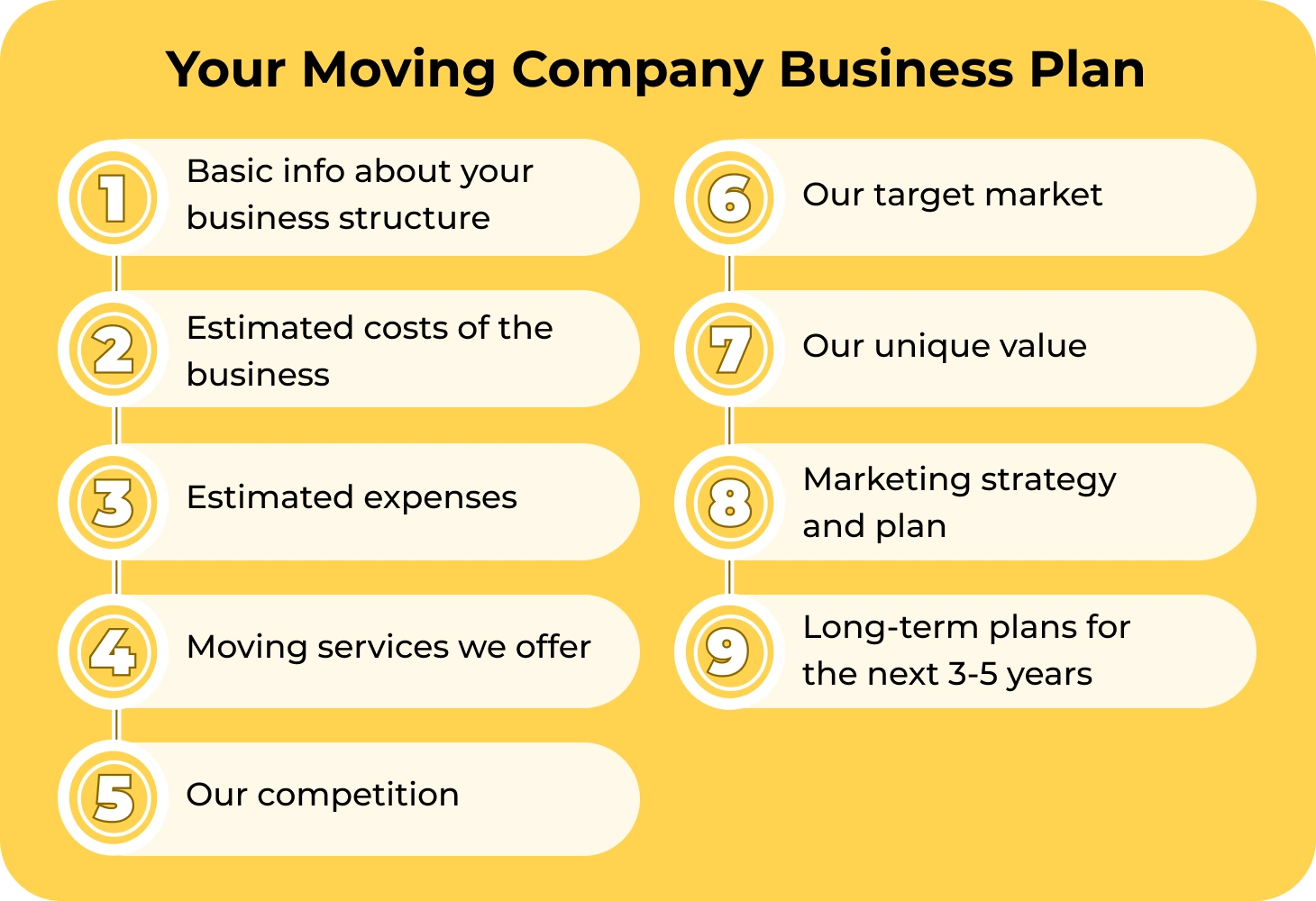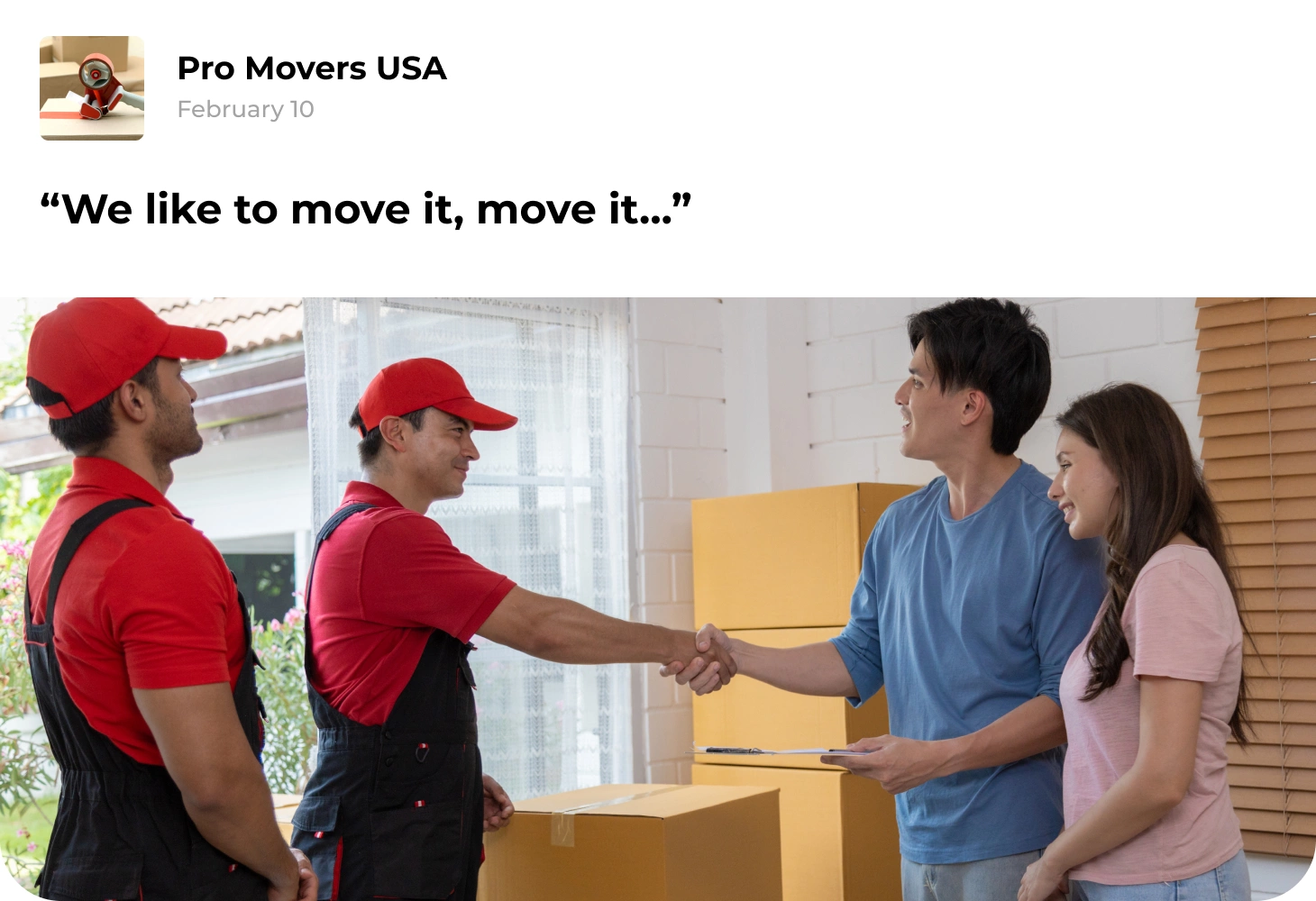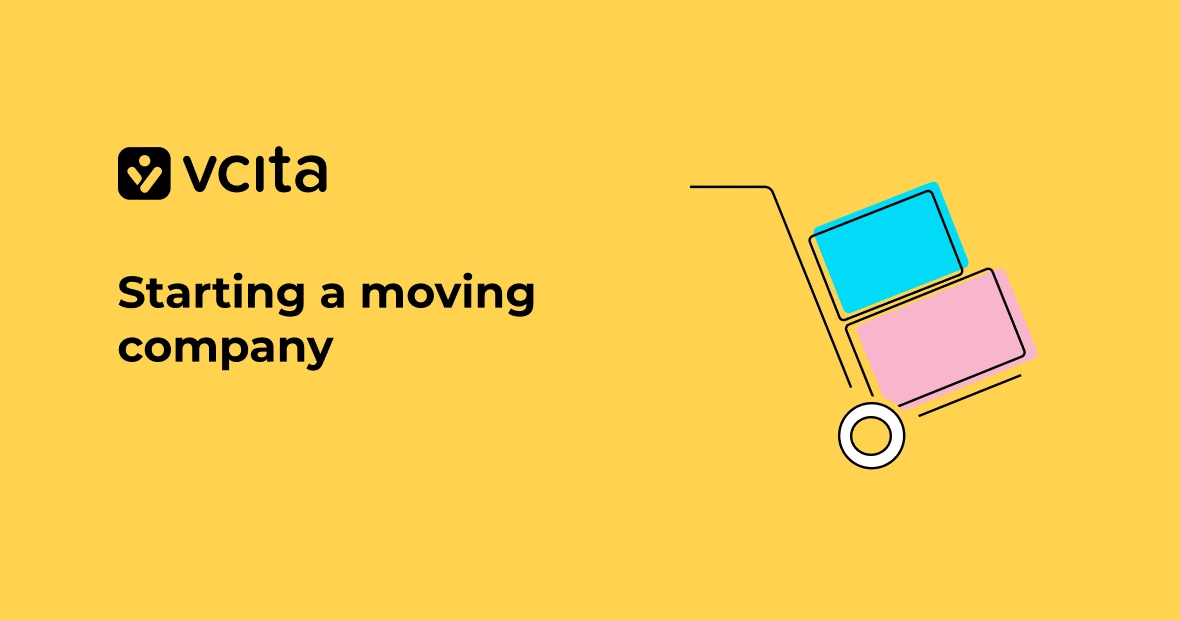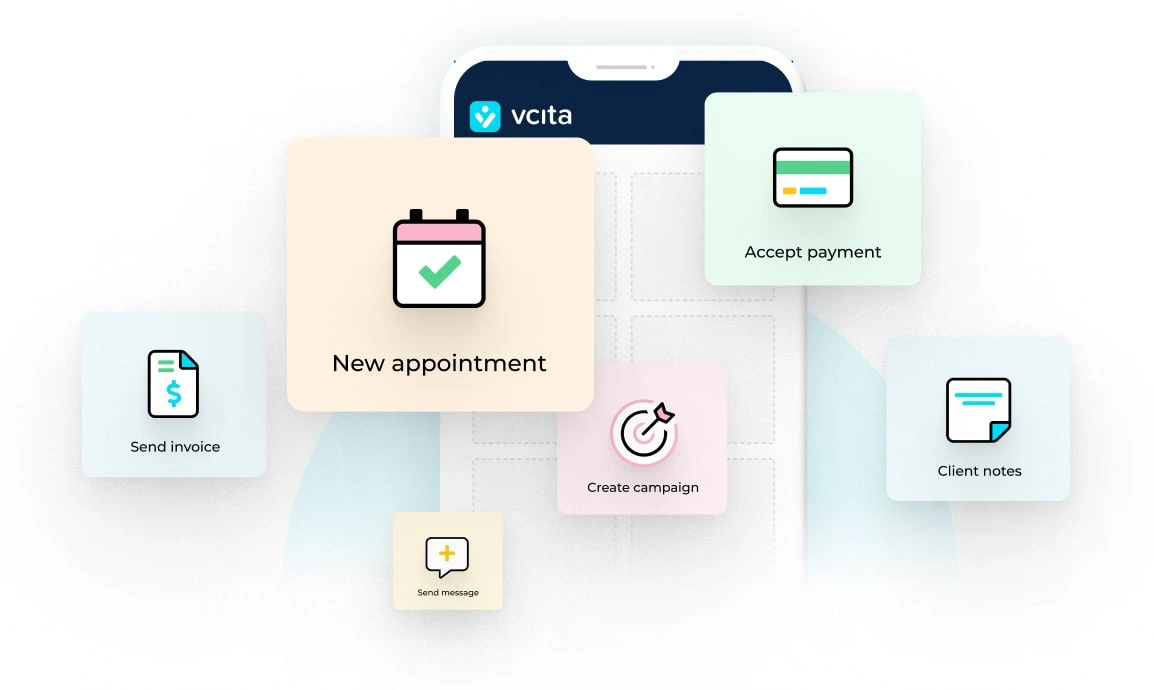Are you an entrepreneur with a passion for helping people move to new places? Then starting a moving company could be the perfect business for you. People are always going to need help moving to a new home or work premises, or transporting their possessions to storage facilities, so starting a moving business could be a great way to develop a stable company with reliable income.
But of course, before you can fire up your moving van and start serving customers, you need to carry out some vital tasks to establish your new business as a legal entity and get the equipment you need to do the jobs. You’ll also want to invest in some marketing campaigns to promote your new moving business and attract plenty of customers.
Here is a step by step guide to starting your new moving business off on the right foot.
Choosing the right business structure for your moving company
To build a successful moving company, you need to choose a business structure that supports your goals. The two most popular options for moving companies are a sole proprietorship or a limited liability company (LLC). Here’s what you need to know to decide between them.
Limited Liability Company (LLC)
An LLC offers the liability protection of a corporation with the tax benefits of a sole proprietorship. As an LLC, your personal assets are shielded from business debts and liabilities, but you can still control all the business decisions. Many moving companies find an LLC to be the ideal setup.
Sole Proprietorship
As a sole proprietor, you are your business. While it’s the easiest structure to establish, you retain full liability for all business debts. For small startups, a sole proprietorship allows you to get up and running quickly, but it might not be the best option as your business develops. An LLC may be better as your business grows.
Obtaining the necessary licenses to start a moving business
Whichever business structure you choose, you’ll still need to register as a business with your state’s Chamber of Commerce, and check if you need any specific business licenses or permits in your city or county. In some states, moving companies need a special household goods mover license.
If you’re planning on operating across state lines, you’ll have to also register with the US Department of Transportation (DOT) and obtain a USDOT number. Make sure you check on DOT regulations, especially regarding issues like vehicle checks and safety precautions.
Every small business needs an EIN, or Employer Identification Number, even if you’re not planning on hiring any employees just yet. You can apply for an EIN in just a few minutes through the IRS website. All you need is your business name, address, and phone number, and some information about the business owner.
Developing a business plan for your moving company

A well-crafted business plan is your roadmap to success as a moving company owner. Outlining your business structure, marketing strategies, financing, and growth plan will guide you through the initial steps of starting a moving company. Your business plan should include:
- Basic information about your business structure, like whether you’ll be a sole proprietor or an LLC
- Your business name and address
- How much you estimate it will cost to set up your business, and your ongoing expenses. This could include rent for an office space, gas for your trucks, packing materials, etc.
- Which types of moving services you intend to offer
- Your competition as a moving business, and what sets you apart from other moving companies
- Some information about your target market
- How you plan to market and promote your new business, and what your strategies are for ongoing business growth
- Long-term business development plans for the next 3-5 years
Once your plan is complete, don’t leave it somewhere to gather dust. Review your plan regularly, and make changes as needed to keep your company growing.
Building your moving services offering and target market
There are so many possibilities in this industry, but to set yourself up for success, you need to make some important decisions about your business services and target market.
It’s important to define exactly which services you’ll offer. Some types of moving services include:
- Commercial moves
- Residential moves
- Packing and unpacking services
- Furniture assembly and disassembly
- Storage solutions
- Cross-country relocations
The more specific your niche, the easier to tailor your business plan and make your new company stand out from the competition.
It’s equally crucial to think about who your target market is and what they need. Will you serve homeowners, renters, businesses, government offices, schools, or a mix? New movers and small businesses are excellent groups to target.
What matters is that you define your ideal customer so that you can understand their pain points fully. That way, you can offer the services and the marketing messaging that will be most effective in attracting their business.
Whatever you choose, make sure to provide outstanding customer service. In this industry, great service and word-of-mouth referrals are key to building a successful moving company, so invest in high-quality packing materials and properly train your employees to deliver the same high standards of service.
Acquiring the resources you need for a new moving business
You can start very small when you begin your moving business, but there are some things you’ll need to invest in. Your most vital item of equipment is your moving vehicle, although it’s up to you if you want to invest in a full-size moving truck, or start with just a medium sized van for small moves.
It’s a good idea to get a ramp and a dolly that you can use to transport items between the vehicle and the building. You can also choose whether to offer packing materials, like cartons, bubble wrap, and packing tape.
One item that’s non-negotiable is insurance coverage. You should get business liability insurance that protects you in case of damage to customers’ goods or property, and insurance for your vehicles and equipment in case they get stolen, lost, or broken. When you employ workers, you’ll also need workers’ comp in case they get injured on the job, and you’ll need cargo insurance if you’re planning to cover long-distance moves.
Marketing your moving company successfully online

Marketing your moving company online is key to building a successful business. The first step is to build an appealing website that includes full information about the services you offer, your pricing, and the best ways to get in touch.
Then you can maximize social media platforms to connect with potential customers and establish your company as an industry leader.
Share photos and videos
Facebook, Instagram, and TikTok are the perfect platforms for images and videos. Post pictures of your moving crew in action, share time-lapse videos of moves in progress, or create behind-the-scenes stories of what it’s like in the life of a mover.
Potential customers will love seeing your team in real time, and showing your human side helps to build trust in your brand. Engage your followers by asking questions or running contests. The more you post, the more visibility you’ll gain.
Be generous with valuable tips and resources
Use platforms like X/Twitter to share helpful advice for those preparing for a move. Post about packing efficiently, moving with kids and pets, or adjusting to a new community, and share links to city resources, storage facilities, or real estate agents.
It’s also valuable to build goodwill by retweeting other companies in related industries. This can help you connect with potential partners who can refer new customers to you. Stay active in discussions and hashtags like #movingtips or #newhome to increase your reach.
Blog about your experiences
Start a blog on your website to establish your company as an expert in the moving industry. You can use it to share personal stories of memorable moves, profile long-time customers, or discuss challenges you’ve overcome.
Educate readers on different types of moves, from local to long-distance, and explain the paperwork involved and how to prepare. A regular blog shows your passion for the work you do and gives Google more content to index, increasing your search ranking.
Join groups and discussions
LinkedIn is a premier social network for small business owners and employers, and Facebook is an excellent resource for finding customers contemplating residential or small business moves. Join relevant groups to connect with others in the moving and transportation sectors, and to answer people’s questions about making a move.
Start discussions about best practices or recent innovations, and look for potential partnerships or job candidates. Build valuable relationships that could lead to new opportunities. With an active LinkedIn and Facebook profile, you’ll gain credibility and new customers will find you.
Your new moving business is just around the corner
Now you have all the information you need to get your moving company up and running. With the right business structure, permits, and insurance, and an effective business and marketing plan, you’ll be poised to build a successful moving company. Starting a successful moving company takes work, but with the right planning and dedication, you’ll be helping customers start new chapters in their lives in no time.




























